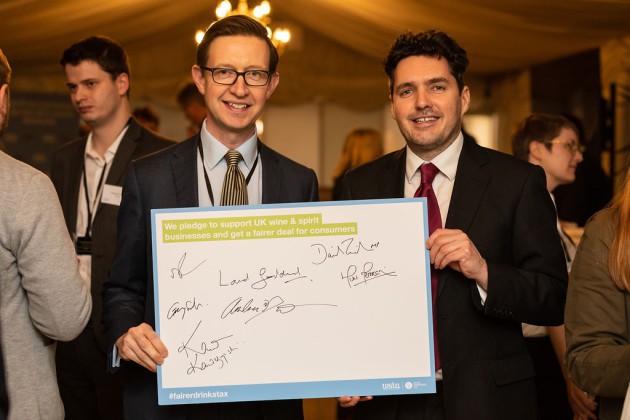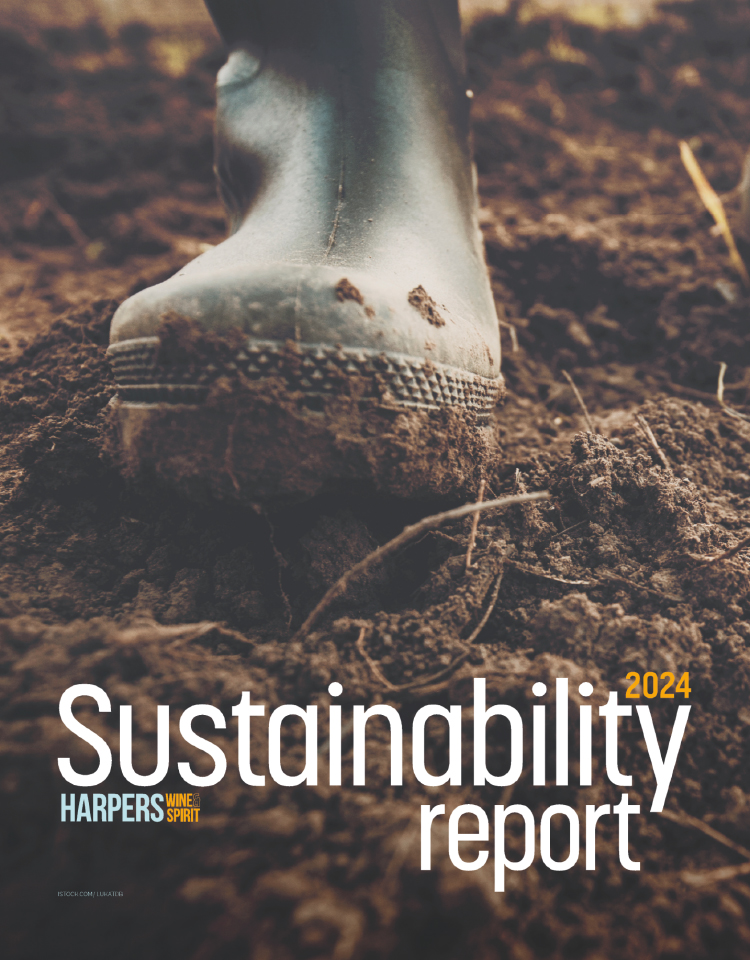
Calls to review ‘punishing’ tax regime aired in Parliament
The Wine and Spirit Trade Association (WSTA) has convened a meeting of MPs and Lords to hear first-hand from British businesses how the ‘punishing’ proposals for duty reform from three to 27 tax bands will negatively impact the drinks industry and consumers.
The reception, which took place in Parliament last week, was organised by the WSTA in order to highlight how the cost of adding new red tape for businesses could rise to £300 million if the complex alcohol tax reforms go ahead as planned.
Sixty MPs attended the reception, where they heard how the proposed changes will see price rises in 80% of all still wine, 95% of red wine and 100% of fortified wines. Spirit drinkers will face the highest taxes of all at 29p a unit.
Miles Beale, chief executive of the WSTA, said: “If all alcoholic drinks are to be taxed according to the alcohol content, it is fundamentally not fair that wine and spirits are set to pay three times the rate proposed for cider and 50% more than the rate proposed for beer. Likewise small producers in our sector should not be left out because they produce wine and spirits, rather than beer or cider. Never has a new playing field been so unlevel!
“Worst of all is the proposal to replacing three rates of tax – for still, sparkling and fortified wines respectively – with 27 different bands. It makes no sense, is not simpler and would be a nightmare of costly new red tape for UK businesses.”
The plans for alcohol duty reform are due to come into effect in February 2023, and look to tax alcohol by degree – a change which will introduce 27 bands for alcohol across categories.
Beale is now calling on the Chancellor to create just two bands, taxed at their mid-point, which would “generate more revenue for the Exchequer and avoid costly bureaucracy for businesses in our industry, especially SMEs”.
Business also in attendance at the reception included James Tanner, chairman of Tanners Wines, who said the current proposals would be a “nightmare” if implemented.
He also supports a system that taxes wines at a midpoint, which he called “simple and elegant, and would work”.
David Gates, CEO of Direct Wines, highlighted the cost of the additional bureaucratic burden. Under the government proposals, “the duty on all 7,500 wines in our portfolio will have to be calculated individually…We estimate that we would need to employ two additional staff just to administer all the regulatory requirements,” he said.
“At a time when the cost of living is rising and set to rise further, the government’s plan will only add to those rising costs of the 33 million wine drinkers.”
The UK is currently the world’s largest spirit exporter and a global hub for wine, with Britain the second largest importer of wine in the world.
However, the WSTA warns that the ‘punishing’ new tax rates will hit UK businesses and consumers at a time when the UK is already battling a cost-of-living crisis. Inflation rates are at an all-time high at 5.5% and are expected to peak at over 7% in April.
Under the current proposals, both beer and cider will continue to be taxed at significantly lower rates than wine and spirits, and the proposed Small Producers Relief scheme will only apply for products under 8.5% abv. This threshold means that vineyards and distillers are barred from accessing the scheme and its benefits, leaving wine and spirit SMEs disadvantaged and dismayed, the WSTA said.
In conversation with Harpers this month, Rob Cooke, chief commercial officer at Majestic Wines, said the approach in government to alcohol reforms was misguided, with the industry regularly not adequately consulted before major changes are made.
“Consultations are supposed to happen before changes, not after,” he said.
Hundreds of businesses and consumers have submitted their responses to the current consultation, which closed at the end of January.
The Wine and Spirit All Party Parliamentary Group has also submitted a report which highlights the concerns from SME. The report concluded that the current policy proposals need to be revised as a matter of urgency.
The WSTA is still encouraging businesses to write replies to their MPs, stressing there is still time to make an impact.
Keywords:
- WSTA
- tax
- duty
- drinks industry
- british
- three
- businesses
- trade association wsta
- spirit trade association
- hand
- reform
- proposals
- ‘punishing’
- negatively
- tax bands
- 27 tax
- ‘punishing’ proposals
- duty reform
- ‘punishing’ tax regime
- tax regime aired
- 27 tax bands







